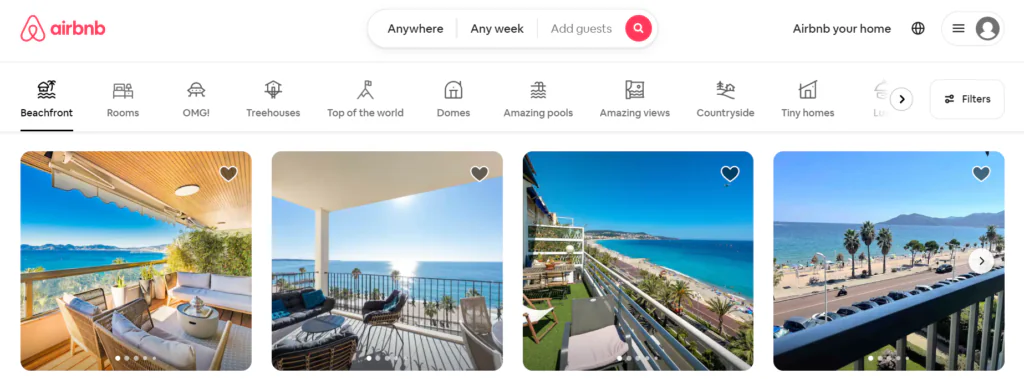Proptech Revolution: Transforming Real Estate into the Future

Definition of Property Technology (Proptech)
Property Technology, popularly known as Proptech, is a broad term that refers to the digital and technological innovations reshaping the traditional landscape of real estate. It essentially involves the use of information technology (IT) to help individuals and companies research, buy, sell, and manage real estate.
This cutting-edge field combines multiple facets of the real estate industry, including but not limited to, real estate management, sales, rentals, purchases, and developments, with the latest technology trends like Big Data, Internet of Things (IoT), Artificial Intelligence (AI), Machine Learning (ML), and Blockchain.
The primary aim of Proptech is to simplify and enhance the efficiency of real estate transactions and processes. It serves to digitalize the industry and offer an improved and seamless experience to all stakeholders, be it buyers, sellers, brokers, or real estate agencies.
From virtual and augmented reality viewings, online estate agents, and e-conveyancing, to smart home technology, digital property management systems, and crowdfunding real estate projects, Proptech is integrating technology into every aspect of the real estate industry. It is creating opportunities for new business models, transforming existing practices, and driving the growth of the real estate sector into a more modern, consumer-friendly, and sustainable future.
In the broader sense, Proptech also refers to the start-ups and companies driving this transformation. It’s a vibrant ecosystem of entrepreneurs, technologists, investors, and real estate professionals collaborating to redefine the rules of property business and create a more engaging and rewarding property experience for everyone involved.
Overview of Proptech Importance in Today’s Real Estate Market
The significance of Proptech in today’s real estate market cannot be overstated. With rapid technological advancements and growing consumer expectations for digital services, Proptech is a vital component of the real estate sector.
Enhancing Efficiency and Transparency
At the heart of Proptech lies the capacity to enhance efficiency across the entire real estate spectrum. With the use of Big Data, AI, and Machine Learning, Proptech solutions are able to process and analyze vast amounts of data at unprecedented speeds. This results in faster, more accurate decision-making, improving efficiency and reducing operational costs. Proptech also fosters transparency, allowing stakeholders to access real-time information, thereby boosting trust and reducing fraudulent practices.
Streamlining Processes
Proptech revolutionizes the way real estate transactions are processed, streamlining processes that were traditionally slow and cumbersome. With the aid of online platforms, property buyers and sellers can transact directly, reducing the need for intermediaries. Automated property management systems, on the other hand, have simplified the maintenance and oversight of real estate assets.
Improving Customer Experience
Proptech is playing a pivotal role in improving customer experiences. Virtual reality and augmented reality offer prospective buyers and renters a virtual tour of properties from anywhere in the world, giving them a realistic experience of the property without being physically present. Moreover, personalized recommendation systems powered by AI are enabling real estate businesses to provide tailored property suggestions to customers based on their specific needs and preferences.
Fueling Innovation
The onset of Proptech is fuelling innovation in real estate, pushing the boundaries of what’s possible in the industry. For instance, IoT-enabled smart homes are transforming the way individuals interact with their living spaces, offering increased comfort, safety, and energy efficiency.
Impacting Market Dynamics
Proptech is also reshaping the dynamics of the real estate market. Through online property marketplaces and crowd-funding platforms, Proptech is democratizing access to real estate investment opportunities that were previously reserved for large investors or institutions.
In conclusion, the importance of Proptech in today’s real estate market is immense. It’s not just changing the way real estate businesses operate but also transforming the way consumers engage with the property market. With its potential to enhance operational efficiency, improve customer satisfaction, and promote transparency, Proptech is truly revolutionizing the real estate landscape.
Brief Introduction to the Evolution of Proptech
The evolution of Proptech is a fascinating journey, mirroring the overall digital transformation that has swept across various sectors. The development of Proptech can be broadly categorized into three main phases or waves.
First Wave of Proptech

This initial stage of Proptech evolution commenced in the late 90s and early 2000s, coinciding with the advent of the Internet. During this period, online property listing platforms like Zillow and Rightmove were born. They simplified property search by offering users a platform to explore real estate listings from the comfort of their homes.
Second Wave of Proptech

The second wave began around 2007-2008, with the proliferation of mobile technology and the emergence of the sharing economy. Companies like Airbnb started to disrupt the traditional lodging sector by offering an alternative to hotel accommodations. This period also saw the advent of cloud-based software for property management and data analysis.
Third Wave of Proptech
The third and current wave is characterized by the integration of advanced technologies like Artificial Intelligence, Machine Learning, Blockchain, and Internet of Things in real estate. This wave is focused on leveraging technology to gain insights, optimize operations, enhance customer service, and increase overall value in the real estate sector.
The following table outlines the different waves of Proptech evolution:
| Wave | Time Period | Key Features | Examples |
|---|---|---|---|
| First Wave | Late 1990s – early 2000s | Introduction of online listings and search platforms | Zillow, Rightmove |
| Second Wave | 2007 – 2014 | Emergence of the sharing economy, cloud-based solutions | Airbnb, CoStar |
| Third Wave | 2015 – Present | Integration of advanced technologies (AI, Blockchain, IoT) | WeWork, Compass |
In the current state, Proptech is not merely seen as a disruptor but rather as an enabler that enhances and simplifies real estate processes. As Proptech continues to evolve, we can expect to see more advancements in real estate practices, offering exciting opportunities for growth and innovation in the industry.
Proptech Market Landscape
The Proptech market landscape is a vibrant, rapidly evolving ecosystem consisting of various segments that together encompass the entire real estate value chain. From real estate fintech to smart buildings and construction tech, Proptech is reshaping the way we buy, sell, rent, manage, and interact with properties.
Here’s an overview of the key segments in the Proptech market:
Real Estate Fintech
Real Estate Fintech, also known as Real Estate Financial Technology, is one of the most prominent segments of Proptech. This segment focuses on creating online platforms and applications that facilitate property transactions. Examples include online mortgage lending platforms, equity crowdfunding platforms for real estate, and platforms for trading Real Estate Investment Trusts (REITs).
Property Management Tech
Property Management Tech involves the use of technology to improve property management processes. This segment includes digital platforms for managing properties, maintenance and repair services, lease management, and tenant communication. IoT-based solutions for smart buildings also fall under this category.
Construction Tech
Construction Tech, often referred to as ConTech, focuses on bringing technology to the construction sector. This includes the use of advanced materials, 3D printing, robotics, and digital tools for project management, design, and collaboration. This segment aims to improve construction efficiency, safety, and sustainability.
Smart Building Tech
Smart Building Tech involves the use of IoT, AI, and data analytics to create intelligent buildings that enhance comfort, safety, and energy efficiency. Smart buildings use a range of sensors and devices to monitor and control various building operations, including lighting, heating, air conditioning, security, and more.
Data and Analytics
Data and Analytics involve the use of Big Data and AI to derive actionable insights from vast amounts of real estate data. This can include market trends, property valuations, risk assessments, and predictive analytics. These insights can help real estate businesses make more informed decisions, improve operational efficiency, and deliver better customer experiences.
Here’s a detailed chart of the Proptech market landscape:
| Proptech Segments | Description | Examples |
|---|---|---|
| Real Estate Fintech | Online platforms facilitating property transactions | Online mortgage platforms, REITs trading platforms |
| Property Management Tech | Digital tools for managing properties and facilities | Digital lease management, IoT for property maintenance |
| Construction Tech | Tech-driven advancements in construction | 3D printing in construction, Robotics |
| Smart Building Tech | IoT solutions for enhancing building operations | Smart lighting, heating, and security systems |
| Data and Analytics | Use of Big Data and AI for deriving actionable insights | Market trends analysis, predictive analytics |
The Proptech market landscape is vast and continues to grow. With increasing investments and continuous technological advancements, we can expect even more innovation in the Proptech sector in the years to come.
Global Spread of Proptech
Proptech has made a significant impact on the global real estate industry, witnessing widespread adoption across various regions. With a growing appetite for digitization, Proptech start-ups and initiatives have emerged worldwide, changing the face of the property market.
North America
North America, particularly the United States, has been at the forefront of the Proptech revolution. With a rich start-up culture and substantial investment flow, the region has seen the rise of several prominent Proptech companies like Zillow, Redfin, and Compass. There’s also significant interest in technological advancements in construction and property management, with companies integrating AI, IoT, and machine learning technologies.
Europe

Europe’s Proptech scene is burgeoning, with countries like the UK, Germany, and France leading the charge. The region has given birth to innovative Proptech companies like PurpleBricks (UK), Spotahome (Spain), and Meero (France). There’s also an increasing emphasis on green buildings and sustainability, driving the demand for tech-driven energy efficiency solutions.
Asia-Pacific
In the Asia-Pacific region, countries like China, India, and Singapore are spearheading Proptech advancements. With a burgeoning middle class, rapid urbanization, and digitalization, the demand for innovative real estate solutions is soaring. China’s Ke.com (Beike) and India’s NoBroker are examples of popular Proptech platforms in the region.
Australia and New Zealand

Australia and New Zealand have also witnessed a surge in Proptech activity. Australia’s PropTech Hub and New Zealand’s Proptech Association reflect the increased awareness and integration of Proptech in these regions.
Middle East and Africa
In the Middle East and Africa, the United Arab Emirates and South Africa are emerging as key Proptech players. The UAE, particularly Dubai, has launched several initiatives to foster Proptech innovation, focusing on smart city projects.
Here is a chart illustrating the global spread of Proptech:
| Region | Leading Countries | Key Developments |
|---|---|---|
| North America | USA, Canada | Rise of major Proptech companies, AI and IoT integration |
| Europe | UK, Germany, France | Rapid growth of Proptech start-ups, focus on sustainability |
| Asia-Pacific | China, India, Singapore | Surge in demand due to rapid urbanization and digitalization |
| Australia and New Zealand | Australia, New Zealand | Increased Proptech activity and awareness |
| Middle East and Africa | UAE, South Africa | Smart city initiatives, emerging Proptech scene |
The global spread of Proptech indicates its universal appeal and the recognition of its potential to revolutionize the real estate industry. As technology advances and the demand for more efficient and user-friendly real estate solutions grows, the role of Proptech will only continue to expand.
Role of Investors in Proptech

Investors play a critical role in the evolution and growth of Proptech. They provide the necessary financial backing that enables Proptech startups to develop, test, and refine their innovative solutions. But their contribution is not just about funding. Investors also bring industry knowledge, business acumen, strategic connections, and mentorship that can greatly influence a startup’s success.
Who are the Proptech Investors?
Proptech investors can be categorized into several groups. These include venture capitalists (VCs), private equity firms, real estate investment trusts (REITs), corporate venture arms of established real estate companies, and angel investors. They invest in Proptech companies at various stages, from early-stage seed funding to later-stage growth investments.
What are Their Investment Criteria?
Proptech investors typically look for startups that offer innovative solutions capable of disrupting or significantly improving existing real estate processes. They evaluate factors such as the scalability of the business model, the size of the target market, the competitive landscape, the uniqueness of the technology, and the expertise of the founding team. They are also keenly interested in startups that can demonstrate product-market fit and the potential for high growth and profitability.
Why Do They Invest in Proptech?
Investors are drawn to Proptech due to the enormous potential of the real estate market, one of the world’s largest and most valuable asset classes. Proptech offers an opportunity to digitize and streamline this historically inefficient industry, creating significant value in the process.
Moreover, the global real estate industry is ripe for disruption, with many processes still relying on outdated methods. Proptech solutions can help address these inefficiencies, creating new possibilities for property management, transactions, financing, and even how people interact with physical spaces.
Case Studies of Successful Proptech Investments
Several Proptech startups have yielded substantial returns for their investors. For instance, venture-backed Compass, a real estate platform that uses technology to streamline the buying, selling, and renting process, went public in 2021, rewarding its early investors.
Another successful Proptech investment story is WeWork, a flexible workspace provider. Despite its well-publicized struggles, WeWork’s innovative business model attracted significant investment and transformed the way businesses think about office space.
How to Attract Proptech Investors
For Proptech startups looking to attract investment, demonstrating a clear value proposition is essential. This means having a unique, scalable solution that addresses a genuine problem in the real estate industry. Additionally, having a capable team, proof of market demand, a solid business plan, and a clear path to profitability will make the startup more attractive to investors.
In conclusion, investors play a pivotal role in the Proptech ecosystem, driving innovation and growth in the sector. As the potential of Proptech continues to unfold, it’s likely we’ll see even more investor interest in this exciting field.
Exploring Real-World Proptech Examples
Property technology or Proptech has found practical applications in numerous areas of the real estate industry. These applications range from facilitating property searches and transactions, improving property management and maintenance, enhancing building designs and construction methods, to even creating smarter, more sustainable cities. Here are some real-world examples that showcase the diverse ways in which Proptech is transforming the real estate landscape.
Proptech in Residential Real Estate
Platforms like Zillow and Redfin in the US, Rightmove in the UK, and 99.co in Singapore have revolutionized the home buying and renting experience. These platforms provide an online marketplace where buyers, sellers, and renters can easily find and compare properties, view high-quality images or virtual tours, access property data and price trends, and even initiate transactions.
One outstanding example is PurpleBricks, a UK-based online real estate broker and Proptech company that offers a flat-fee service to sellers, changing the traditional commission model.
Proptech in Commercial Real Estate
In the commercial sector, companies like WeWork have leveraged Proptech to reimagine office spaces, providing flexible, shared working environments for businesses of all sizes. VTS, a commercial real estate leasing and asset management platform, enables landlords and brokers to manage their end-to-end leasing process and attract high-quality tenants more efficiently.
Proptech in Construction and Building Design

Procore Technologies, a leading provider of construction management software, offers a stellar example of Proptech’s transformative power in this realm. Procore’s platform connects entire project teams, from the office to the field, providing a comprehensive view of their projects. It provides real-time communication across teams, simplifying project management and ultimately boosting productivity.
On the design side, software like Autodesk’s BIM 360 is providing architects, engineers, and construction professionals with the tools to plan, design, construct, and manage buildings more efficiently.
Proptech in Smart Cities
On a larger scale, Proptech is playing a vital role in the development of smart cities. Sidewalk Labs, a subsidiary of Alphabet, aims to integrate digital technology into cities to improve urban life. An example of their work is the Quayside project in Toronto, which envisioned a high-tech neighborhood with features such as efficient energy usage, optimized waste collection, and adaptable buildings.
These examples illustrate the diverse and transformative impact that Proptech is having on the real estate industry. By addressing various pain points and inefficiencies, Proptech solutions are making real estate processes more streamlined, accessible, and customer-friendly. As technology continues to evolve, it is exciting to see how Proptech will continue to shape and redefine our interactions with real estate in the future.
Proptech Conferences and Events
Proptech conferences and events are integral parts of the global Proptech ecosystem. These platforms offer valuable opportunities for networking, learning, collaboration, and showcasing innovation. They bring together various stakeholders from the real estate and technology industries, including start-ups, investors, real estate professionals, technology providers, and thought leaders.
Overview of Key Proptech Conferences Worldwide
There are numerous Proptech conferences held worldwide, each catering to different regions and topics within the Proptech landscape. Some of the most prominent ones include MIPIM PropTech (held in NYC and Europe), PropTech Summit Asia, Realcomm (USA), Future PropTech (UK), and PropTech Australia.
What to Expect from Attending a Proptech Conference
Attending a Proptech conference offers several benefits. These events often feature keynote speeches, panel discussions, and workshops led by industry leaders, providing insights into the latest trends, challenges, and opportunities in the Proptech sector. They also provide opportunities for start-ups to pitch their ideas and products to potential investors.
Moreover, these conferences provide excellent networking opportunities. Attendees can meet potential partners, clients, mentors, and investors, fostering relationships that can significantly influence their business’s success.
How to Leverage Proptech Conferences for Networking and Learning Opportunities
To make the most of a Proptech conference, attendees should plan ahead. This includes identifying key sessions they want to attend, people they wish to meet, and setting clear goals for what they hope to achieve from the event.
Here is a chart showcasing some of the key Proptech conferences globally:
| Conference | Location | Key Features |
|---|---|---|
| MIPIM PropTech | Europe | Networking, showcasing innovation, thought leadership |
| PropTech Summit Asia | Asia | Focus on Asian Proptech scene, networking, thought leadership |
| Realcomm | USA | Networking, panel discussions, keynotes |
| Future PropTech | UK | Focus on European Proptech scene, workshops, networking |
| PropTech Australia | Australia | Showcasing innovation, networking, focus on Australian Proptech scene |
Conclusion
As we’ve explored throughout this article, Property Technology, or Proptech, is undeniably transforming the real estate industry. From its conceptualization to the present day, Proptech has grown exponentially, significantly altering the real estate landscape. Its global spread underlines the universal need for more streamlined, efficient, and customer-friendly processes in one of the world’s most significant asset classes.
By digitizing and revolutionizing traditional property transactions and management, Proptech has made real estate more accessible and understandable to the masses. With its application ranging from residential and commercial real estate to smart building technology and construction, Proptech’s impact is vast and far-reaching.
However, as with any innovative sector, Proptech also faces challenges. These include regulatory hurdles, the need for significant investment in technology and infrastructure, and the traditional mindset of many within the real estate sector. Despite these challenges, the benefits that Proptech offers – increased efficiency, cost savings, improved customer experience, and enhanced decision-making capabilities – present compelling reasons for its continued adoption and development.
Investors’ role has proven pivotal in Proptech’s rise, offering not just financial support but strategic guidance and mentorship. Their continued interest and investment in Proptech start-ups underline their confidence in Proptech’s potential to bring meaningful and sustainable changes to the real estate industry.
Attending Proptech conferences and events can offer real estate professionals, investors, and tech enthusiasts insight into the sector’s latest developments. They provide a platform for learning, networking, and collaboration, driving forward the global Proptech conversation.
In conclusion, while the journey of Proptech is still in its early stages, its transformative potential is clear. As technology continues to advance, and with the concerted efforts of innovators, investors, real estate professionals, and regulatory bodies, the future of Proptech looks bright. A new era of real estate is unfolding before us, and Proptech is leading the charge. It’s an exciting space to watch, engage with, and invest in, promising to reshape our interaction with real estate in the years to come.